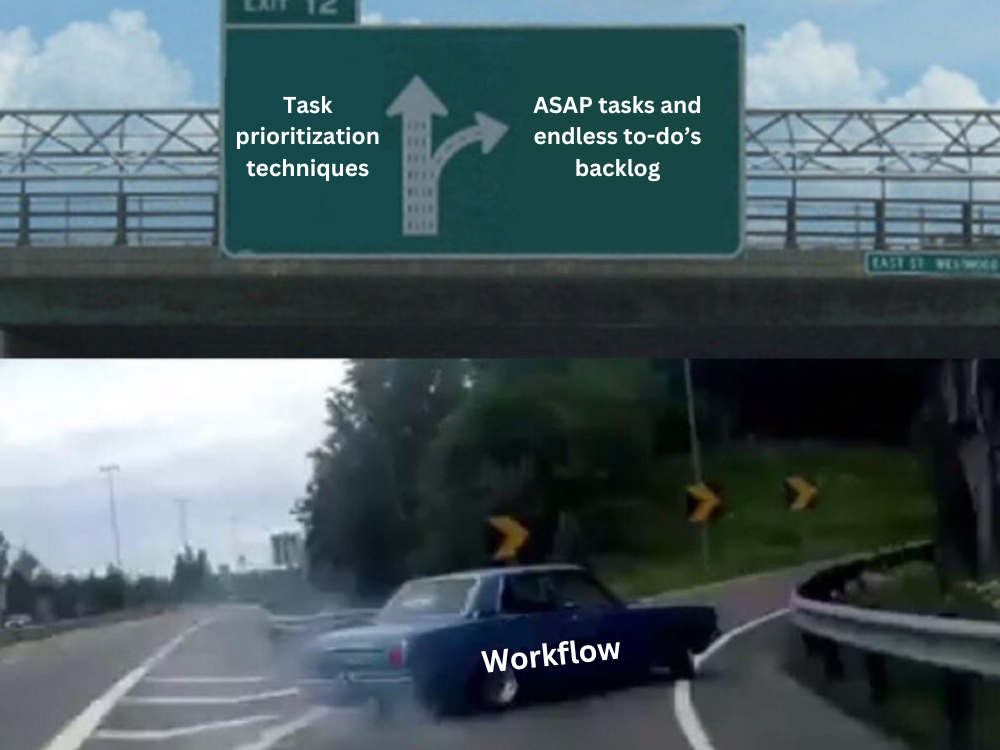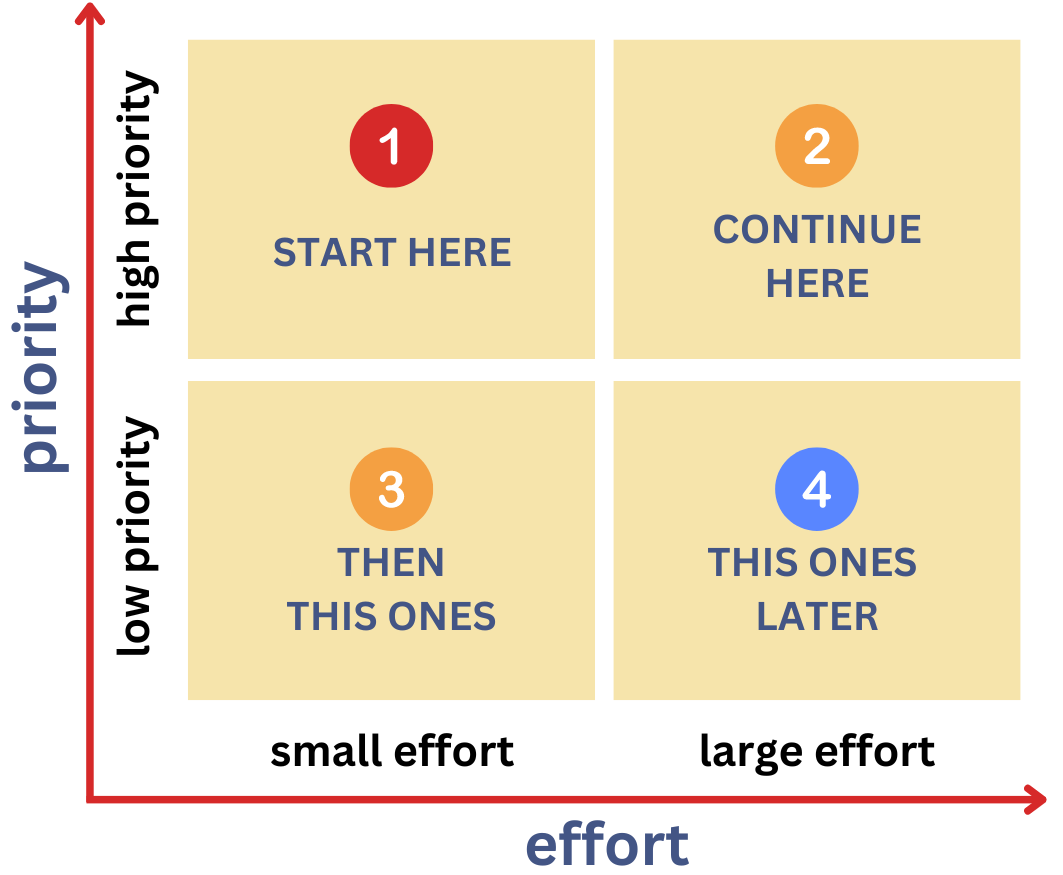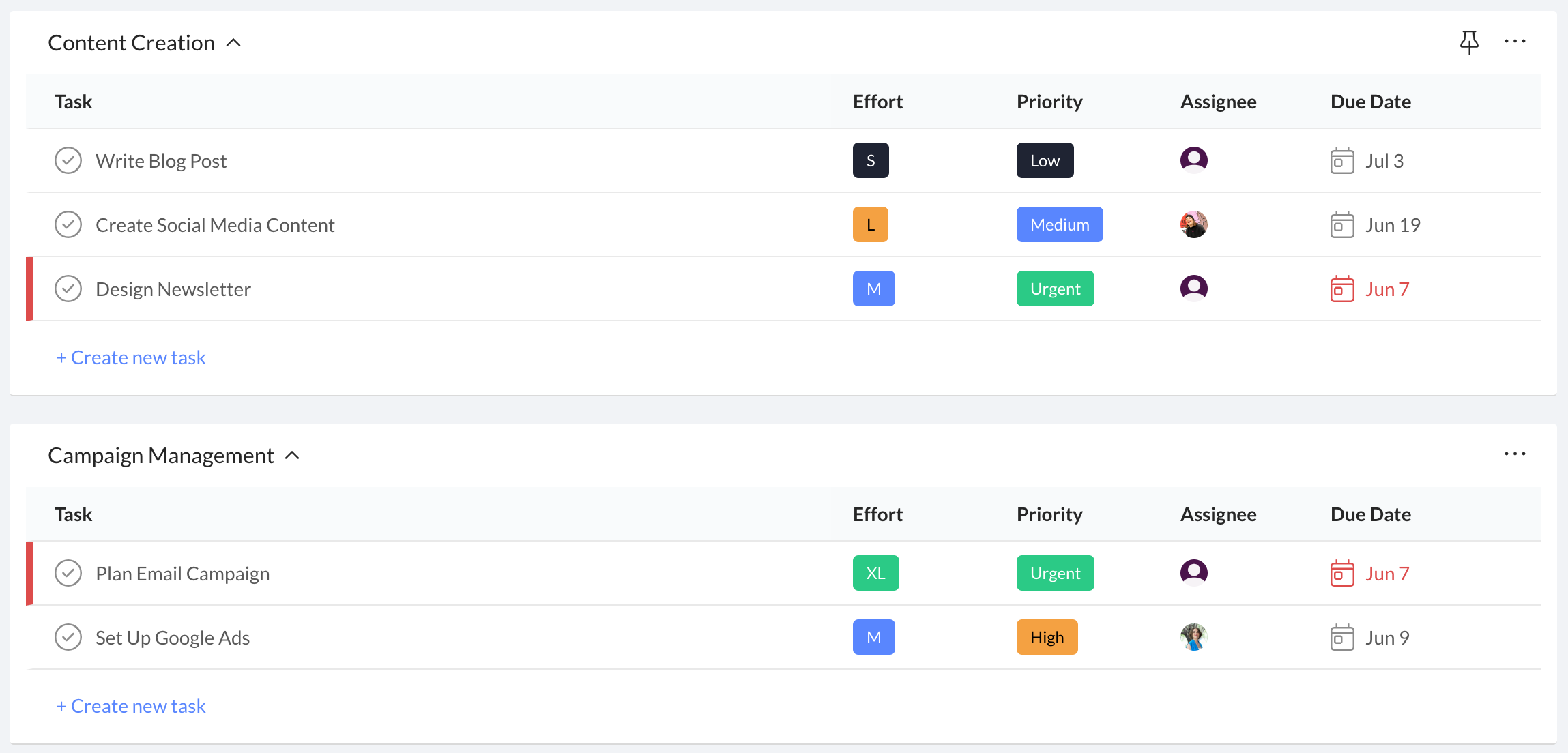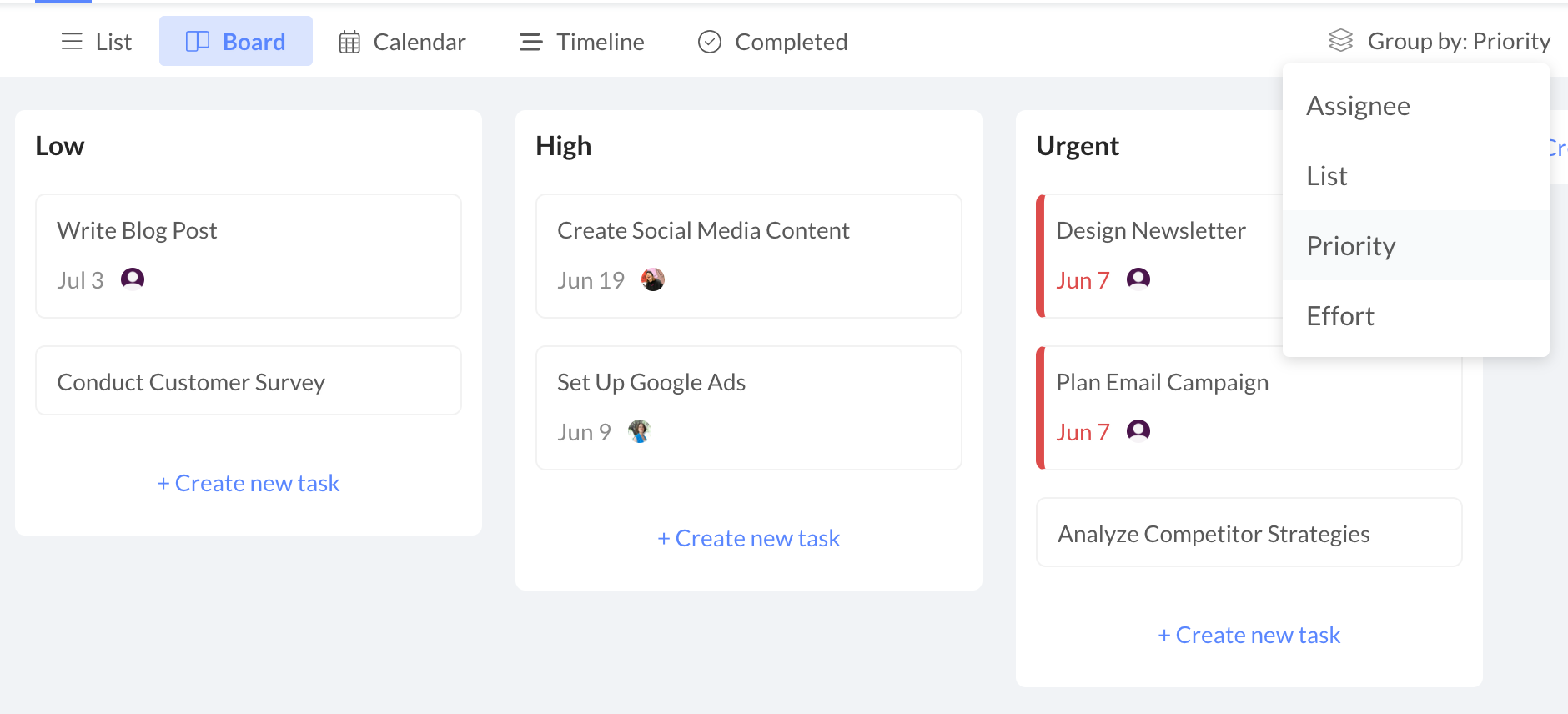#3 - STOP endless to-do lists with this trick
By
Guillermo Gette
Guillermo is the co-founder and CEO of Workast.
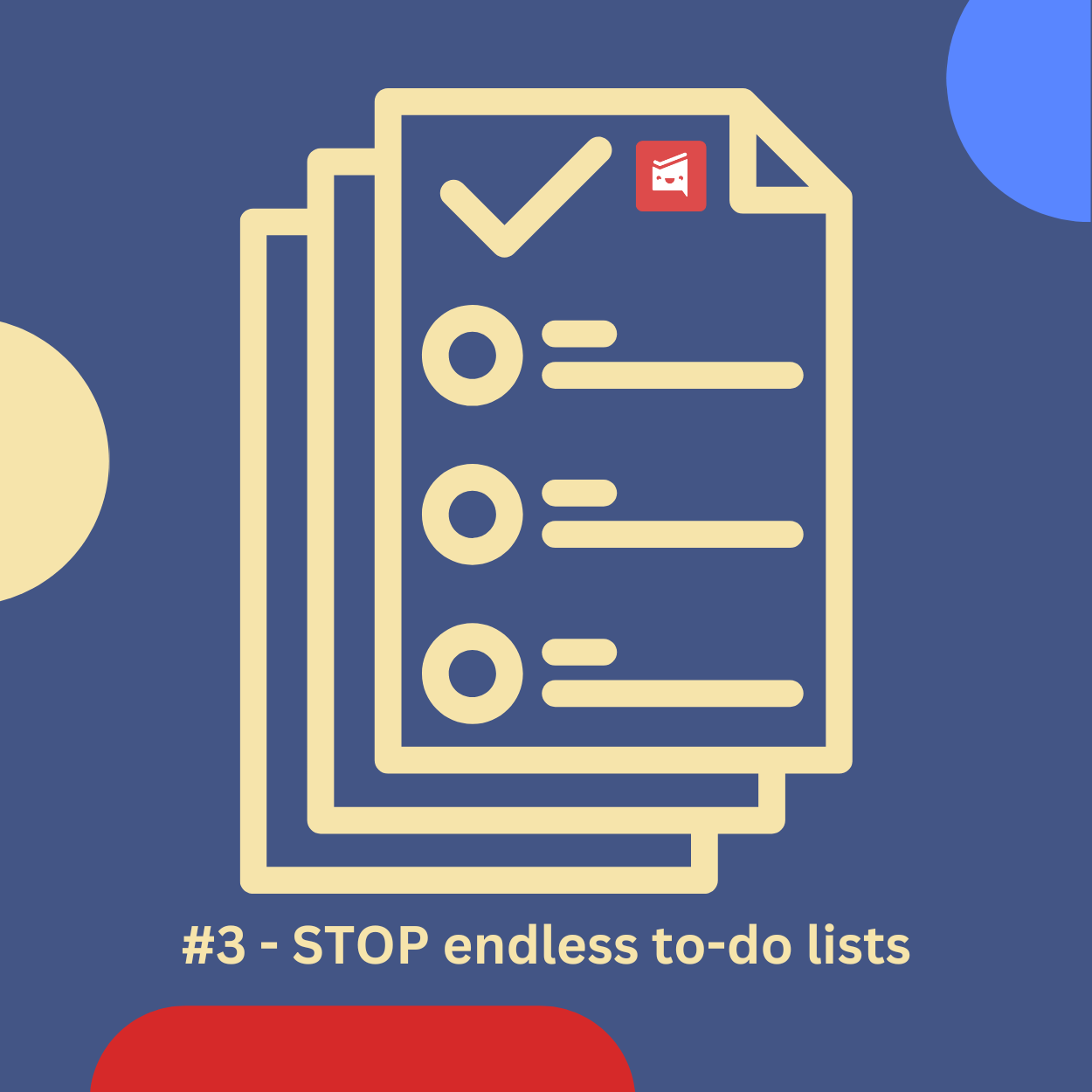
Guillermo is the co-founder and CEO of Workast.
Things that have to be done ASAP is a common method to choose what to work on. This is easy, right?
But more often, we found multiple tasks with the same priority or not priority but things that need to be done… some time.
This list is called “backlog” by project managers. But it starts growing uncontrollably and soon you end up overwhelmed, ditching your task manager because nothing is getting done. 😣
Here is a simple recipe that you can apply for prioritizing your tasks:
The moment a task is created, assign an effort level to it. Keep it simple and easy to understand. I recommend using t-shirt sizes.
Small (S): Minimal effort, quick wins.
Medium (M): Moderate effort, manageable within a few days.
Large (L): Significant effort, may span over a week.
Extra Large (XL): Major effort, long-term projects.
If multiple people are involved in a task, then try to split their work in subtasks so you can have a more accurate estimation.
Assign a priority to each task.
Urgent
High
Medium
Low
(Priorities change all the time, so it’s ok to revisit the list and re-assign priorities).
So... how do we decide what to work on? Now that you have your tasks categorized with the amount of effort and priority, here’s a simplified approach to start organizing what to get done.
Start with the Small Effort - High Priority: tackle these tasks first for quick wins and immediate progress.
Continue with Large Effort - High Priority tasks: plan and allocate resources to these critical, long-term tasks next.
Then Small Effort - Medium Priority: fit these manageable tasks around more critical ones.
Lastly Large Effort - Low Priority: assess the necessity of these tasks and consider postponing or simplifying them.
💡 Try our template to prioritize your work
👉 Over time you’ll start realizing how many tasks that are S, M, L or XL your team can accomplish in a period of time (this is called “Velocity”). It is a great indicator of your team productivity.
👉 This system help you estimate the time it will take you to deliver new projects.
👉 Hold weekly/biweekly meetings with your team where you go over priorities and assign to each team member a mix of tasks to complete that fit their weekly workload.
👉 In Workast, group tasks by priority, sort by effort, and use list or board views for clear focus.
__
This email is #3 of our "Work Smarter, Not Harder" series, where we'll dive deep into simple yet powerful ways to enhance your workflow using tools you already know.See you soon as we delve deeper into optimizing your operations!
Guillermo Gette
Co-Founder & CEO, Workast
